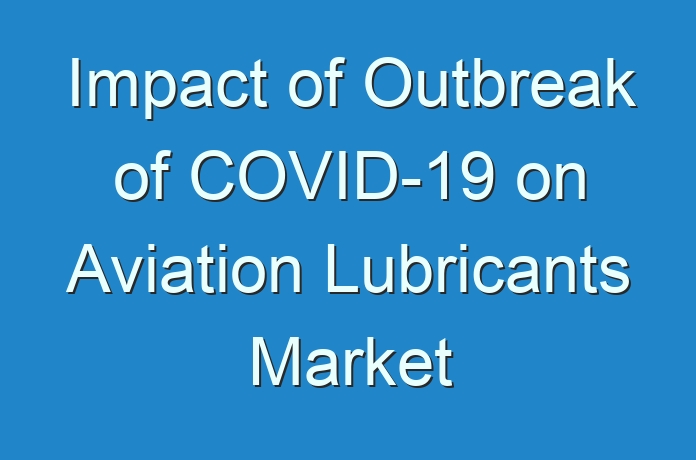
Global Aviation Lubricants Market: Key Highlights
- The global aviation lubricants market was valued at ~US$ 875 Mn in 2018, and is anticipated to expand at a CAGR of ~ 5% during the forecast period.
- The global aviation lubricants market is driven by rise in the demand for commercial aviation and general aviation.
- North America accounts for a substantial share of the global aviation lubricants market, due to increase in the demand for domestic aviation and supportive schemes by governments in the region.
Key Drivers of Global Aviation Lubricants Market
- Rise in the demand for air travel among passengers and increase in cargo activities are the key factors boosting the global aerospace industry. The emergence of a large-sized middle class, rise in urbanization, and growth of megacities are encouraging people to move from one place to another for business or personal reasons.
- According to the International Civil Aviation Organization (ICAO), 4.3 billion passengers used the global air transport network for business, tourism, or simply to visit friends and relatives (VFR) in 2018. The annual total number of passengers increased by 6.1% in 2018 as compared to 2017. The number of departures rose to approximately 38 million, globally.
- According to a survey by Airbus Helicopters, 14,000 military helicopters are expected to be produced, worldwide, in the next 20 years. Increase in the number of military aircraft in developing economies, especially in Asia Pacific, and replacement and maintenance of the existing ones, are boosting the demand for aviation lubricants for use in military aircraft.
Request PDF Brochure –
https://www.transparencymarketresearch.com/sample/sample.php?flag=B&rep_id=41393
Large Commercial Jets to Witness Attractive Opportunities
- The large commercial jets segment accounted for a leading share of the global aviation lubricants market in 2018. Moreover, the segment is anticipated to expand at a significant rate in the global aviation lubricants market during the forecast period.
- This is primarily due to the increasing number of aircraft passengers across the globe, especially in developing countries such as China and India. In these countries, the number of airline passengers has been growing at a significant rate over the last few years, due to the rising disposable income and spending power of people in these countries.
High Investments and Risks Associated with Aviation to Hamper Market
- Air transport is considered costlier than other modes of transport. The operating costs of airplanes are higher. Hence, airfares are high, and middle-class people may not always be able to afford them.
- Also, in case of any failure in an aircraft, all persons on board can be at a high risk. This factor hampers the global aviation industry.
- Due to the recent threats and growth in geopolitical instability, the military aviation sector witnessed a slowdown in 2018. Economic difficulties as well as postponement of significant military campaigns have resulted in uncertainties. According to Airbus Helicopters, worldwide deliveries of military turbine helicopters decreased to ~620 units in 2018.
North America Dominates Global Aviation Lubricants Market
- Among the regions, North America accounted for a major share of the global aviation lubricants market in 2018. North America has the second-largest commercial aviation fleet in the world. According to Boeing Commercial Market Outlook 2019–2038, North America had 7,550 commercial aircraft in 2018.
- Increase in the number of domestic passengers in the region is anticipated to fuel commercial aviation activities in the region during the forecast period.
REQUEST FOR COVID19 IMPACT ANALYSIS –
https://www.transparencymarketresearch.com/sample/sample.php?flag=covid19&rep_id=41393
- In terms of military aviation, North America has the largest fleet across the globe. The U.S. had a fleet size of approximately 13,398 aircraft in 2018.
- Increase in government spending on military aircraft in North America is anticipated to drive military aviation in the region in the next few years. This, in turn, is projected to augment the aviation lubricants market in the region from 2019 and 2027.
Highly Competitive Market Led by Large Number of Small and Medium Players
The global aviation lubricants market is oligopolistic in nature. A small number of large- and medium-sized players operate in the global aviation lubricants market. The top three players, i.e. ExxonMobil Corporation, Royal Dutch Shell Plc., and Total Group, accounted for a collective share of approximately 60% of the global aviation lubricants market in 2018. Among these, ExxonMobil Corporation accounted for a major share of the global aviation lubricants market. The company has a wide distribution network and operates across all major regions. ExxonMobil Corporation focuses on developing new aviation lubricant solutions.
- In October 2016, ExxonMobil Corporation announced that its Port Allen production plant for aviation lubricants located in Louisiana, the U.S., had achieved full production capacity for the entire line of Mobil Jet engine lubricants. The facility is spread over 90,000 square feet, and is part of investments worth US$ 200 Mn to expand the company’s integrated chemical and lubricants complex in Baton Rouge, Louisiana (the U.S.), which is already one of the largest petrochemical hubs in the world. The facility is expected to help meet the rising demand for high-performance synthetic aviation lubricants in the U.S. in the next few years.
Explore Transparency Market Research’s award-winning coverage of the global (Chemicals and Materials) Industry





